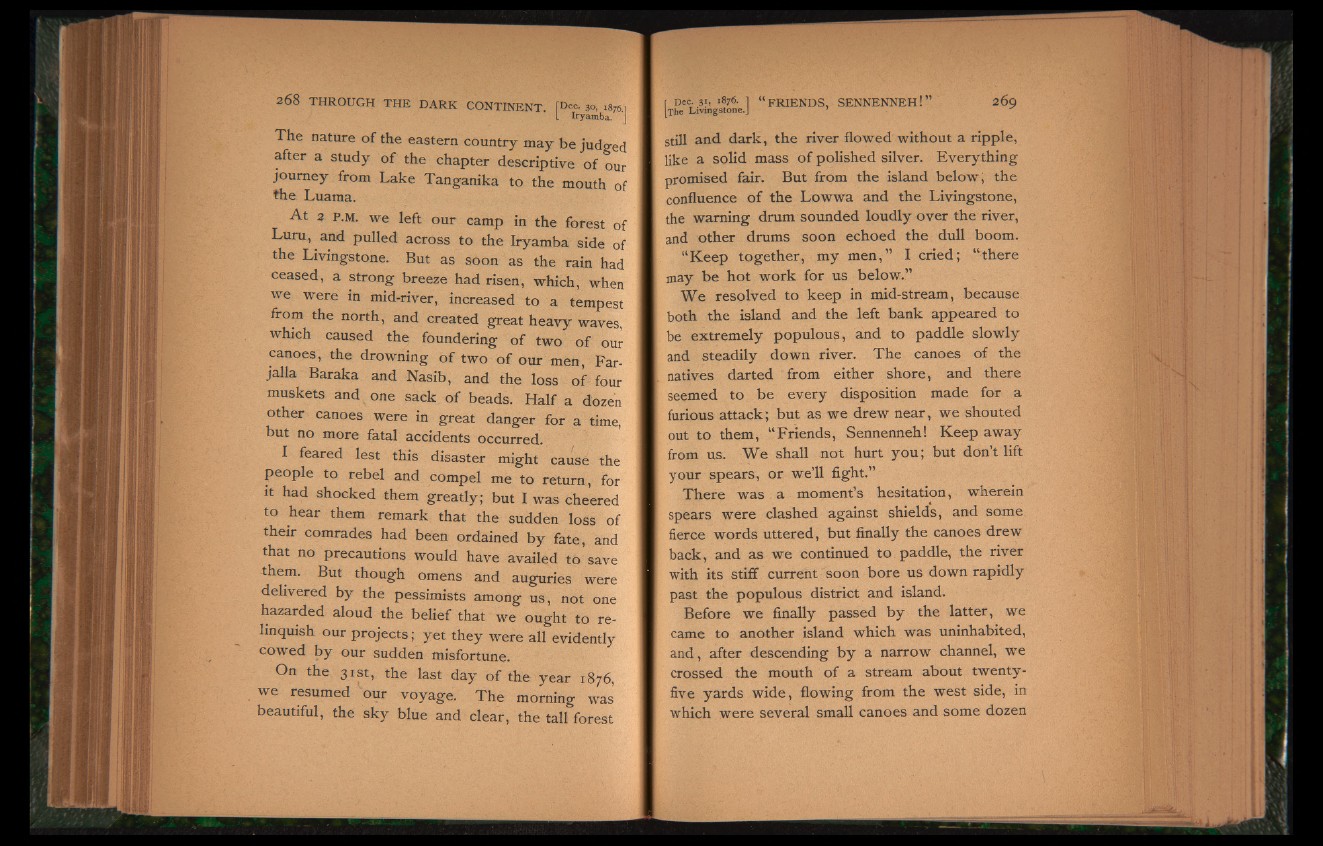
The nature of the eastern country may be judged
after a study of the chapter descriptive of our
journey from Lake Tanganika to the mouth of
the Luama.
At 2 p.m. we left our camp in the forest of
Luru, and pulled across to the Iryamba side of
the Livingstone. But as soon as the rain had
ceased, a strong breeze had risen, which, when
we were in mid-river, increased to a tempest
from the north, and created great heavy waves,
which caused the foundering of two of our
canoes, the drowning of two of our men, Far-
jaHa Baraka and Nasib, and the loss of four
muskets and one sack of beads. Half a dozen
other canoes were in great danger for a time,
but no more fatal accidents occurred.
I feared lest this disaster might cause the
people to rebel and compel me to return, for
it had shocked them greatly; but I was cheered
to hear them remark that the sudden loss of
their comrades had been ordained by fate, and
that no precautions would have availed to save
them. But though omens and auguries were
delivered by the pessimists among us, not one
hazarded aloud the belief that we ought to relinquish
our projects; yet they were all evidently
cowed by our sudden misfortune.
On the 31st, the last day of the year 1876,
we resumed our voyage. The morning was
beautiful, the sky blue and clear, the tall forest
still and dark, the river flowed without a ripple,
like a solid mass of polished silver. Everything
promised fair. But from the island below; the
confluence of the Lowwa and the Livingstone,
the warning drum sounded loudly over the river,
and other drums soon echoed the dull boom.
“Keep together, my men,” I cried; “ there
may be hot work for us below.”
We resolved to keep in mid-stream, because
both the island and the left bank appeared to
be extremely populous, and to paddle slowly
and steadily down river. The canoes of the
natives darted from either shore, and there
seemed to be every disposition made for a
furious attack; but as we drew near, we shouted
out to them, “ Friends, Sennenneh! Keep away
from us. We shall not hurt you; but don’t lift
your spears, or we’ll fight.”
There was a moment’s hesitation, wherein
spears were clashed against shields, and some
fierce words uttered, but finally the canoes drew
back, and as we continued to paddle, the river
with its stiff current soon bore us down rapidly
past the populous district and island.
Before we finally passed by the latter, we
came to another island which was uninhabited,
and, after descending by a narrow channel, we
crossed the mouth of a stream about twenty-
five yards wide, flowing from the west side, in
which were several small canoes and some dozen